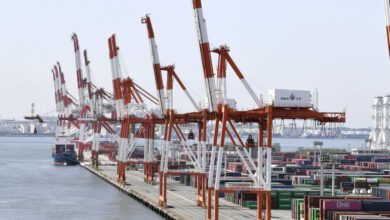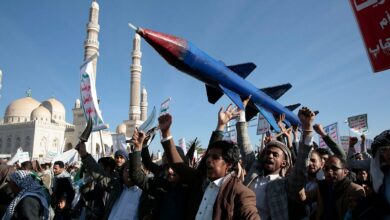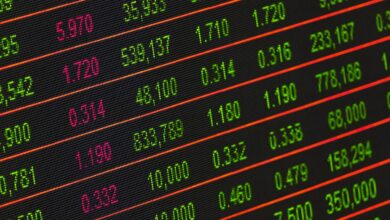Russia sanctions are ineffective, says Dubai trade hub chief
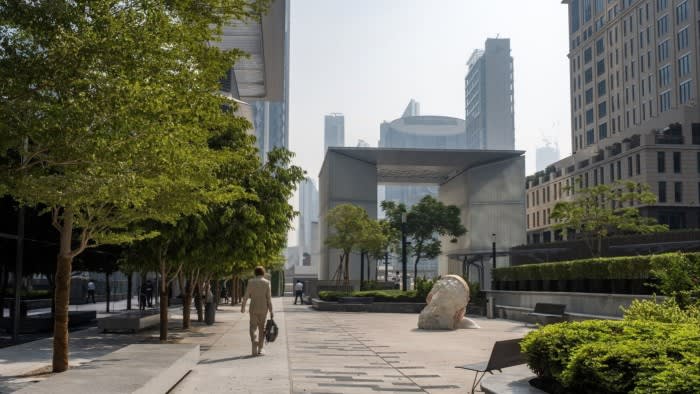
Unlock the Editor’s Digest for free
Roula Khalaf, Editor of the FT, selects her favourite stories in this weekly newsletter.
Sanctions on Russia are having no impact outside the west and attempts to halt the flow of business merely redirect it elsewhere, the chair of Dubai’s main trading hub has said.
“Sanctions slow the economy, never stop it,” said Hamad Buamim, chair of the Dubai Multi Commodities Centre, a leading United Arab Emirates free trade zone that says it hosts more than 24,000 businesses. He is also president of Dubai’s chamber of commerce. “Trade continues flowing, it just flows in a different way,” he told the Financial Times in an interview.
Buamim’s comments come as Dubai leverages its geographical position between east and west to cement itself as a node for world commerce at a time when sanctions imposed on Russia over the war in Ukraine, economic protectionism and US-China tensions are reshaping global trade.
Dubai is seen as a beneficiary of US and European attempts to isolate Russia’s economy, as oil traders relocated from Geneva to the UAE after Switzerland joined the sanctions imposed on Moscow. Energy is the most important sector for the DMCC, according to Buamim, with some 3,000 energy companies registered in the zone.
However, in recent months the UAE, along with other countries, has been under pressure from the US, EU and UK to act against companies trading with Russia.
“The fact that the economy is not purely controlled by one side of the world makes these sanctions less effective,” Buamim said. “If we just take the Ukraine conflict, [sanctions] are effective when you look west, but they are not really effective beyond that.”
He added: “We don’t see them as a great tool to make any impact. They are just making trade more complex and impacting the whole world.”
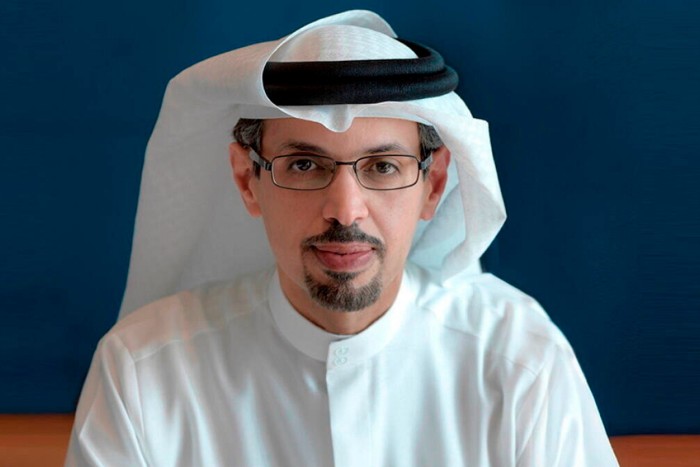
The US has in particular targeted international banks that finance trade deals. The UK has also imposed sanctions on the Dubai-based oil trader Paramount Energy & Commodities DMCC, an entity set up shortly before G7 members imposed a price cap on Russian oil and that shares its name with Paramount Energy & Commodities SA, a Swiss group founded by veteran Dutch trader Niels Troost.
The European parliament, meanwhile, has voted against removing the UAE from the EU’s “grey list” of high-risk countries, alleging it had made lacklustre efforts to address Russian sanctions evasion. The issue is now with the European Commission.
The restrictions have made it difficult for Russia to produce advanced weapons and sustain the rate of fire it maintained earlier in the war, according to defence analysts.
The CREA, a Finnish energy think-tank, said sanctions on Russian oil exports cost the Kremlin an estimated €34bn in 2023, with almost all the cost coming from driving down the price of Russian oil.
This month, Gazprom also reported a $7bn loss after Russian gas exports halved in the wake of the full-scale invasion of Ukraine. Russia has also faced significant price rises on types of imports targeted by sanctions and export controls.
But Buamim said the sanctions were not the reason companies had relocated to Dubai. “It is not the Russians that really dominated the growth. We had growth coming from Switzerland. We have companies from other countries. They see that Dubai has the infrastructure, the market access and the neutral stance [on the war].”
Many international companies who had to leave Russia also needed to find a location where their Russian staff would be welcome, he added.
Buamim was speaking as the DMCC released a report on the future of trade that predicted increasing challenges from deglobalisation and climate change, balanced in part by the use of AI to redraw and manage logistics.
“Protectionism has started to top the agenda of all politicians. Unfortunately, politics is driving decisions that are not commercially viable for the global economy,” he said.
Until now, he said, the UAE and the Gulf states in general had managed to maintain a neutral position that was, for example, “neither pro-American or anti-China”. But this was becoming more difficult to maintain as the US started to ask countries to choose sides, he said.
“That tension between the US and China is no longer a US-China problem,” Buamim said. “This is a challenge for businesses throughout the world.”

